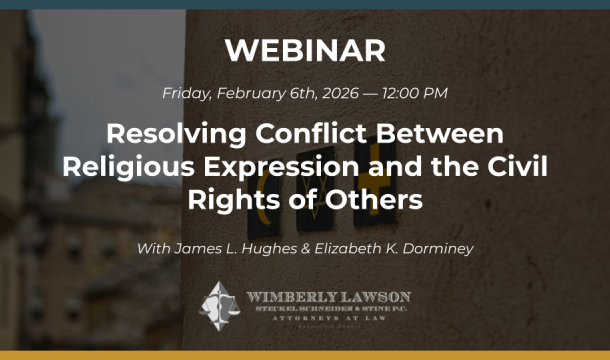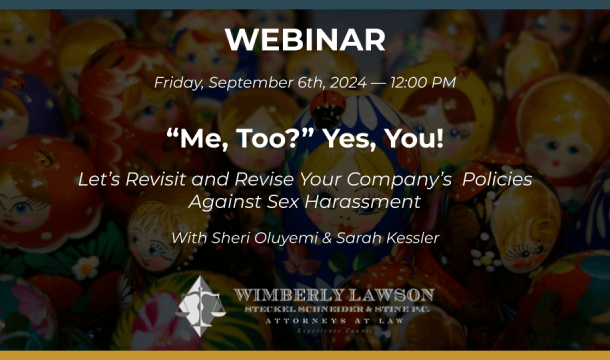Federal Judge Denies Arbitration in Entire Case Where the Employer Failed to Exempt Sex Harassment Claim from Arbitration
The Ending Forced Arbitration of Sexual Assault and Sexual Harassment Act of 2021 (EFAA) barred arbitration agreement provisions that required employees to arbitrate sexual assault/harassment claims. Most thought this law would simply remove those particular claims from overbroad arbitration agreements while allowing other claims in the case to proceed to arbitration. However, a New York federal judge has applied the law very broadly, by ruling: "The Court construes the EFAA to render an arbitration clause unenforceable as to the entire case involving a viably pled sexual harassment dispute, as opposed to merely the claims in the case that pertain to the alleged sexual harassment." Johnson v. Everyrealm, Inc. (S.D. N.Y, 2023).
Editor's Note - Plaintiff lawyers favor court litigation over arbitration because they believe that juries offer a better potential for sympathetic and large plaintiff verdicts. This court ruling makes it likely that plaintiffs' lawyers across the country will try to add some type of sexual assault/harassment claim in court filings where they are aware that the employer has arbitration agreements requiring arbitration of employment claims. Plaintiffs' lawyers may attempt to add frivolous sexual harassment claims to more viable claims in order to try to evade enforcement of a mandatory arbitration agreement for the entire lawsuit.
It is likely that the Johnson case will be appealed and possibly reversed, because courts have interpreted the Federal Arbitration Act (FAA) to strongly favor upholding arbitration agreements. This decision nevertheless represents a danger to employers wanting to enforce mandatory arbitration agreements. Employers should expedite the review and amendment of their employment agreements to expressly exempt sex assault/harassment cases from the mandatory arbitration process. This will ensure that claims not involving sexual assault/harassment can proceed to individual arbitration rather than ending up in court and a potential jury ruling.
This article is part of our May 2023 Newsletter.
View newsletter online
Download the newsletter as a PDF
Related Content
Get Email Updates

Effect of Administration’s Abandonment of Disparate Impact in the Area of Discrimination Continues to Be Felt

Issues Arise for Employers Concerning the Overtime Tax Break

NLRB To Move Quickly as Quorum Is Restored

EEOC Issues New Guidance on National Origin Discrimination

Resolving Conflict Between Religious Expression and the Civil Rights of Others




